Electrical Safety Tips
- Look up and around you. Always be aware of the location of power lines, particularly when using long tools and ladders, pool skimmers, and pruning poles. Be especially careful when working near power lines attached to your house. Keep in mind that wind can blow large objects out of your control.
- Keep equipment and your body at least 10 feet from power lines. Even if you do not come in contact with a power line, the electricity can arc to nearby objects and people.
- Be careful when working on or around your roof. That includes installing or cleaning gutters, installing rooftop antennas and satellite dishes or doing repair work. Never use water or blower extensions to clean gutters near electric lines. Contact a professional maintenance contractor.
- Never climb trees near power lines.
- Never trim trees near power lines. Leave that to the professionals.
- Always follow safety procedures, no matter how boring and mundane they seem.
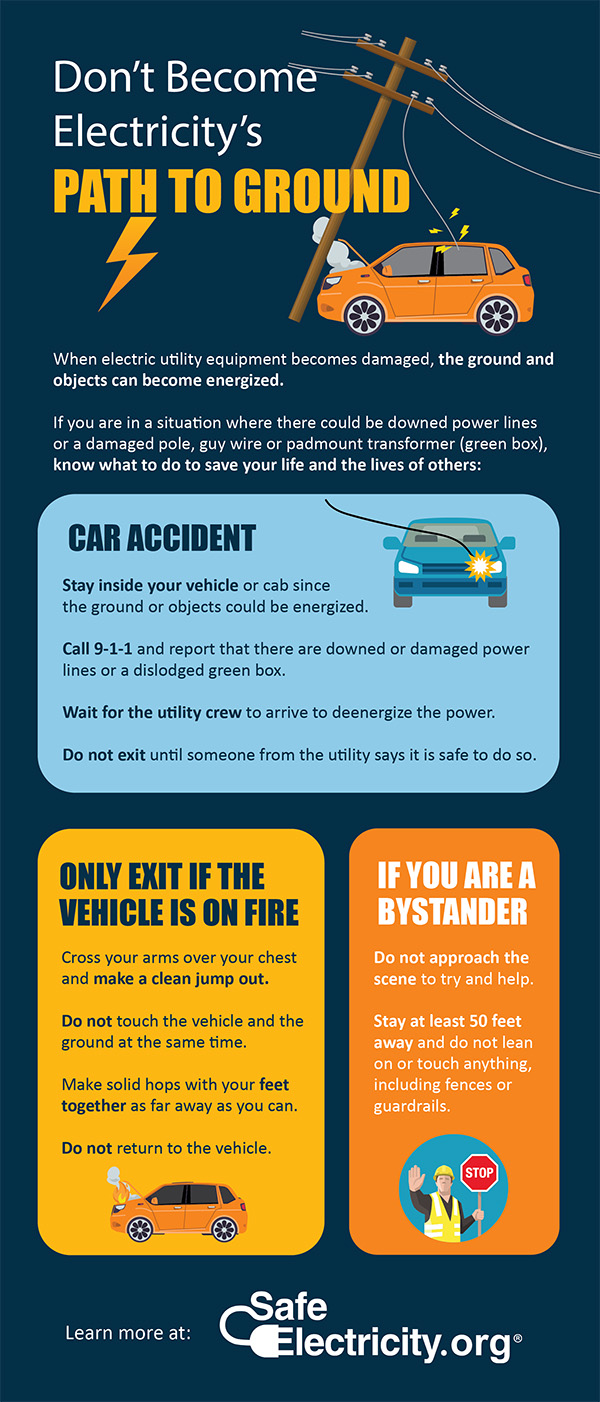
- If it is necessary to connect a generator, make sure to have qualified, licensed electrician install the appropriate equipment.
- Make sure the unit is connected to an appropriate electrical ground, in accordance with the National Electric Code. Follow directions supplied with the generator.
- Operate the generator in a clean, dry, well-ventilated area. Make sure your hands are dry, and do not use it in rainy, wet or icy conditions.
- Inspect extension cords before use. If they are worn, frayed, have them replaced before use!
- Make sure not to overload the generator.
- Make sure to turn off all of the equipment being powered by the generator before turning off the generator.
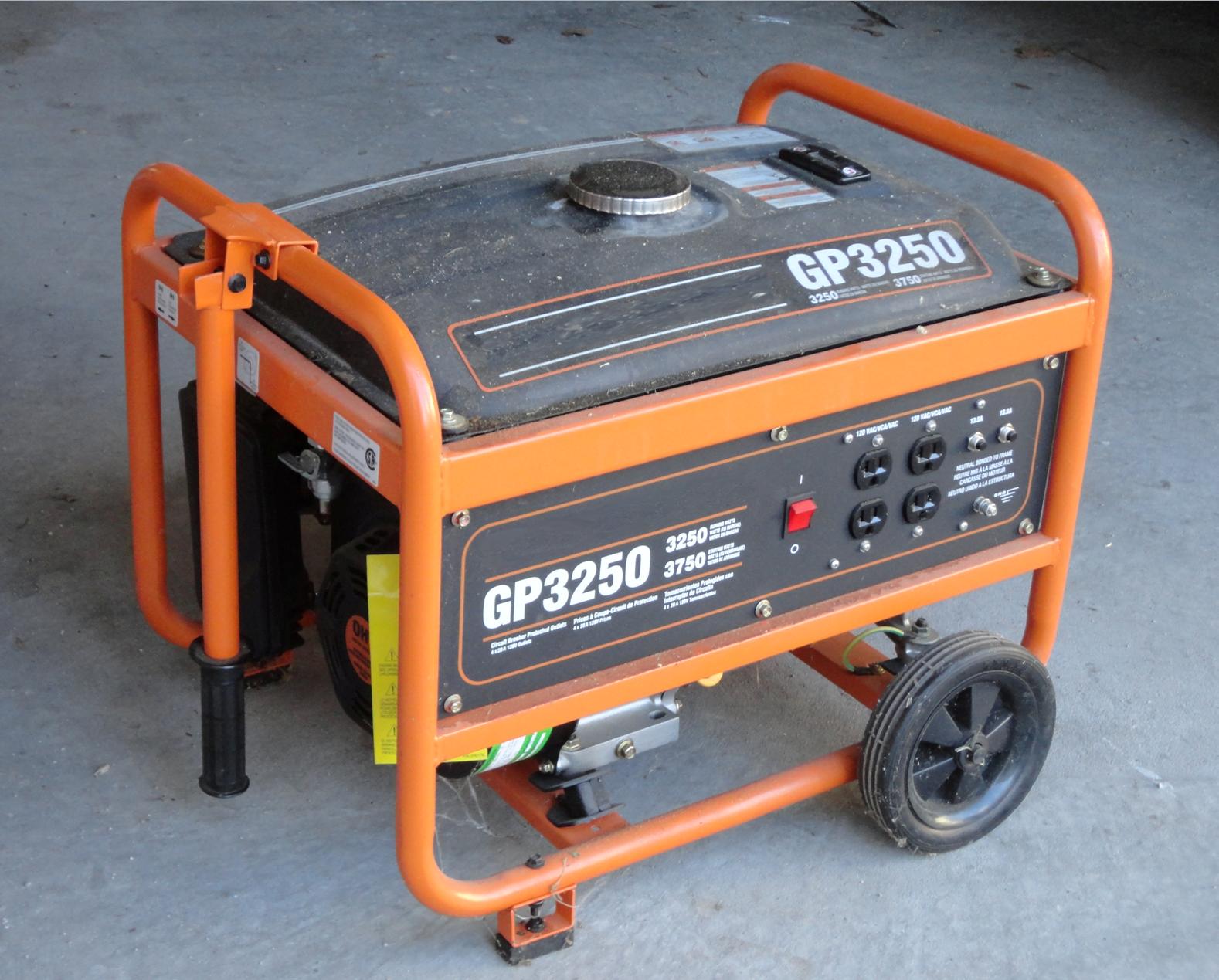
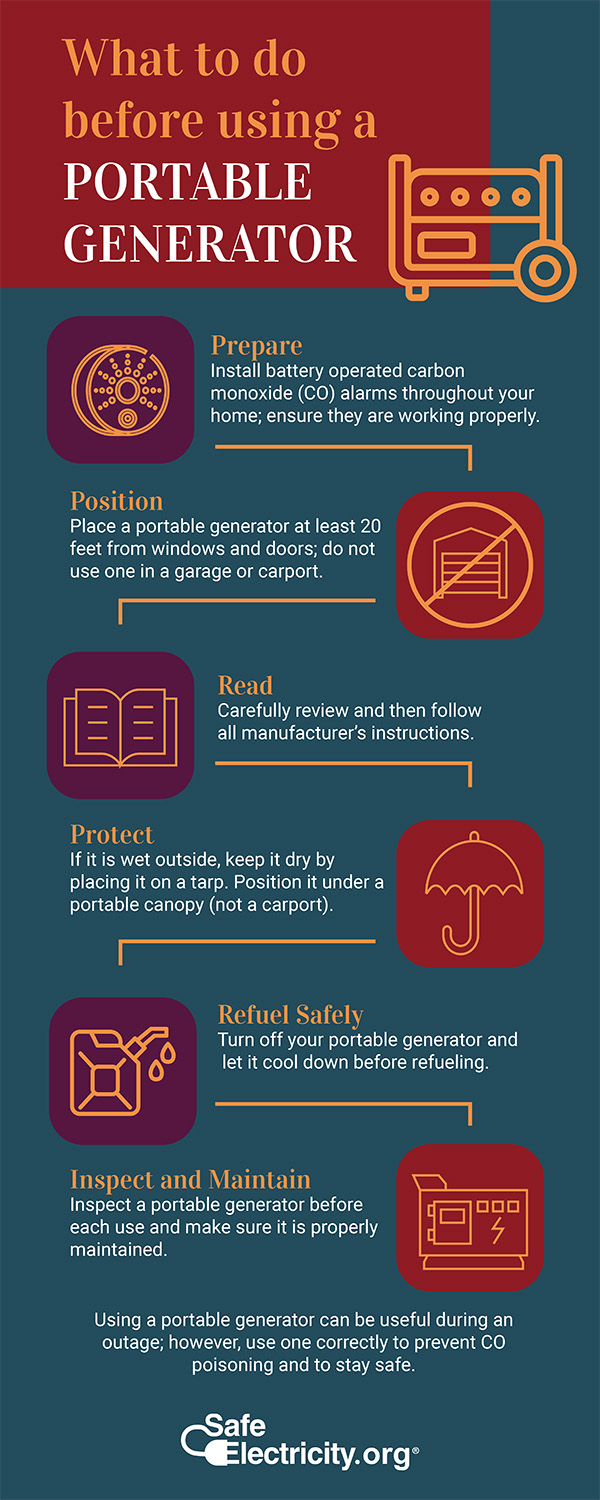
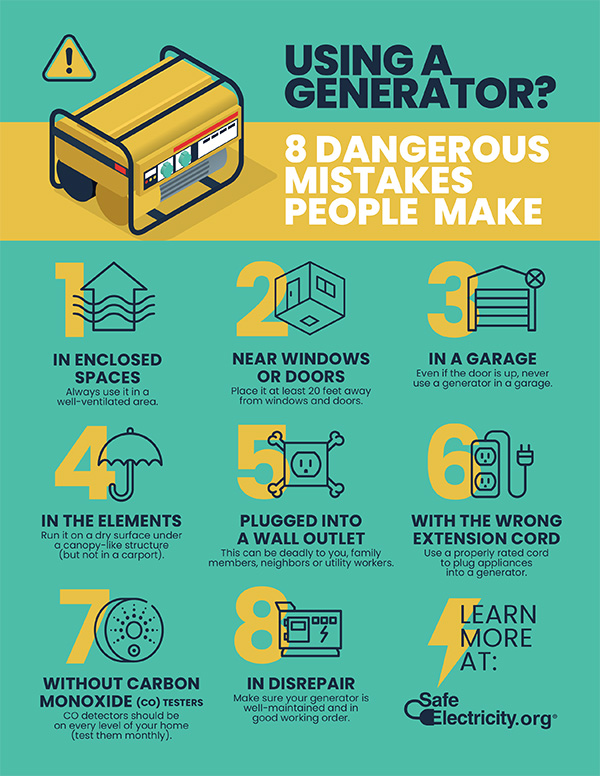
Ground Fault Circuit Interruptor (GFCI)
Invest in smoke detectors and carbon monoxide alarms.
Install smoke detectors on every level of your house and outside each sleeping area. Replace the batteries twice a year (unless you have a new model with a 10-year battery). Carbon monoxide alarms notify you when a defective heater that burns natural gas, oil, propane, wood, or kerosene is emitting this odorless gas into your home. Symptoms of carbon monoxide poisoning include breathing and confusion. If you think you have the flu but get better when you leave the house, carbon monoxide may be the cause.
Use caution when handling appliances and electrical equipment. Never insert metal objects into appliances (such as putting a knife into the toaster), and always unplug appliances, wires, or electrical switches with wet hands.
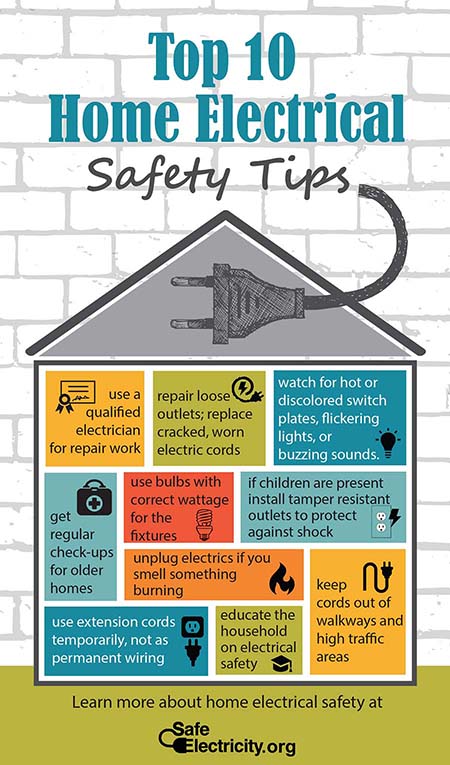
Public Safety
Surry-Yadkin EMC is always happy to go into the community to visit schools and civic groups to present our High Voltage Safety Demonstration. The co-op has created a miniature display that helps students understand the importance of electrical safety.
This presentation is available upon request. If you would like to learn more about electrical safety, or schedule a safety demonstration, please contact our safety coordinator, Sheldon Howlett, at 336-356-5287 or sheldonhowlett@syemc.com.

